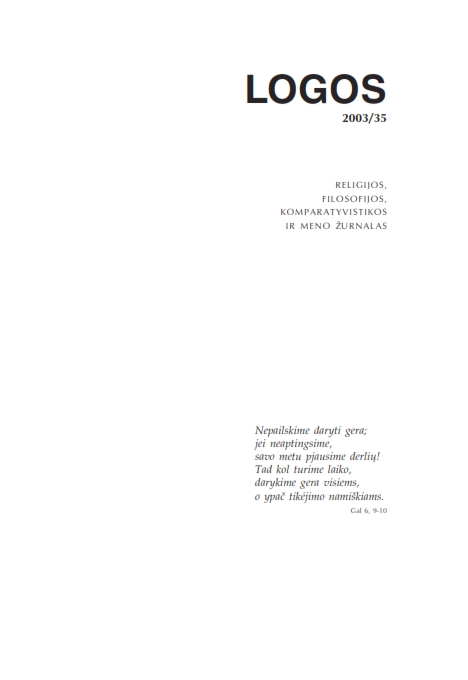Paulis Ricoeuras: pohėgelinis sugrįžimas prie Kanto
Paul Ricoeur: Posthegelian Return to Kant
Author(s): Jūratė BaranovaSubject(s): Ethics / Practical Philosophy, Contemporary Philosophy, Phenomenology, Hermeneutics
Published by: Visuomeninė organizacija »LOGOS«
Keywords: Ricoeur; Kant; moral philosophy; phenomenology; hermeneutics;
Summary/Abstract: Paul Ricouer in this article is considered as the most consequent “posthegelian” Kantian, who productively elaborated further his ideas in moral philosophy and created a permanent place for Kant in contemporary moral philosophy. Unlike other moral philosophers who are considered as consequent Kantians as well - Rawls, Apel, Habermas - Ricoeur does not try to interpret Kant’s discussed practical reason as primary public. He rightly stated that the possible polilogue - a way to justice in morality – was elaborated further by Rawls, not by Kant himself. Ricoeur discerned not only a monologic, but also a dialogical stage in Kantian moral philosophy. He integrated many thinkers and aspects of different traditions in his philosophical analysis: Christian existentialism, phenomenology, hermeneutics, semiotics, psychoanalysis, and religious studies. In the center of broad philosophical interests, Kant, according to my view, remains his permanent partner in dialogue. In his early book L’homme faillible (1965), revealing the fallibility and fragility of man, Ricoeur is following Kant’s concept of transcendental imagination, which includes the opposition between limitlessness and infinity. In all his anthropological and moral studies, Ricoeur always keeps in touch with the concept of evil revealed in Kant’s book Die Religion innerhalb der grenzen der blossen Vernunft. In his book Kritik der reinen Vernunft, Kant, discussing the first analogy of experience, stated that the condition for the possibility of human experience is the permanence of time (beharrlich). If every moment is not a moment of the same time, the subject would not be able to unite all the images into one consciousness. Ricoeur returned to this problem in his book Temps et recit. For his narrative concept of the person’s self-identity, Ricoeur reflects on insights not only from Aristotle’s Poetics, but also starts from Kant’s third antinomy between determinism and free-will as well.
Journal: LOGOS - A Journal of Religion, Philosophy, Comparative Cultural Studies and Art
- Issue Year: 2003
- Issue No: 35
- Page Range: 53-62
- Page Count: 10
- Language: Lithuanian

